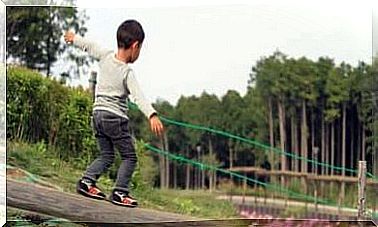How To Recognize A Child’s Rage And How To Deal With It?

Children can sometimes feel frustrated or overwhelmed. The inability of parents to deal with these feelings can make them explode into a rage. Almost every child sometimes suffers from outbursts of anger, and in some children the anger escalates into rage. Sometimes these situations result in aggressive behavior.
Identifying a child’s rage isn’t a particularly difficult thing to do, but often we parents think outbursts are normal childhood outbursts, and we don’t remember that rage can lead to many problems at a later stage.
Today we tell you how a child’s rage is distinguished from a harmless outburst of anger.
- The child may cause problems at school.
- The child’s anger and aggression affect the rest of the family.
- The behavior of a child is a danger to himself or herself or those around him.
- The scenes last a long time and become a continuous defense mechanism.
- Aggression increases to such a level that the child is no longer able to control himself.
- His behavior interferes with his personality and prevents him from forming relationships with others. He may also be left out of games, birthday parties and other activities.

What causes rage?
It has been proven that anger is often a sign of a child’s suffering. Anger and aggression are defense mechanisms against both the outside world and oneself.
The first step in understanding a child’s anger is to find out what are the reasons and things that make the child behave this way. Next, we list a few factors that can cause such feelings in a child. In addition to these reasons, trauma and abuse, for example, can also cause similar feelings.
ADHD
More and more children are showing signs of ADHD. They are children who are impulsive and hyperactive, and they have a lot of difficulty controlling their own behavior.
Children diagnosed with a disorder of activity and attention are unable to focus properly on daily activities. However, the onset of these symptoms does not always mean that the child has been diagnosed with ADHD. Sometimes the symptoms are ignored, which can lead to destructive and aggressive behavior.
Anxiety
Usually, a rebellious and angry child suffers from severe anxiety that has not yet been identified. She hides other problems with her behavior and finds it difficult to deal with stressful situations. The clearest sign of anxiety is that the child is trying to escape because of the great fear that is overwhelming him.
Difficulties in sensory perception
Some children have difficulty processing sensory information or the surrounding space. General sensitivity or sensitivity to stimuli may cause anxiety in the child. For example, a child may feel very embarrassed by cold or hot temperatures or by coming into contact with a particular texture or composition.
The matter should be addressed as soon as possible in order to prevent the problem from becoming chronic.
Autism
Autistic children can also suffer from emotional problems. This disorder can affect a child’s ability to communicate and make their own feelings clear to others.

How to help a child suffering from rage attacks?
Parents are the first to modify a child’s use. The following tips will help control your child’s rage:
- Help the child be empathetic to the outside world.
- Makes the child understand that all emotions are allowed, but all behavior is not. So the child gets angry, but he is not allowed to express his feelings aggressively.
- Teach your child how to manage stress. Exercise, reading, and thinking about positive things are examples of promoting relaxation.
- Teach your child to breathe deeply when he or she is out of his or her mind.
Finally, a condensation on controlling a child’s rage; anger is not always due to how the child was raised. We need to help our children control their own impulses to prevent bigger problems in their future.









